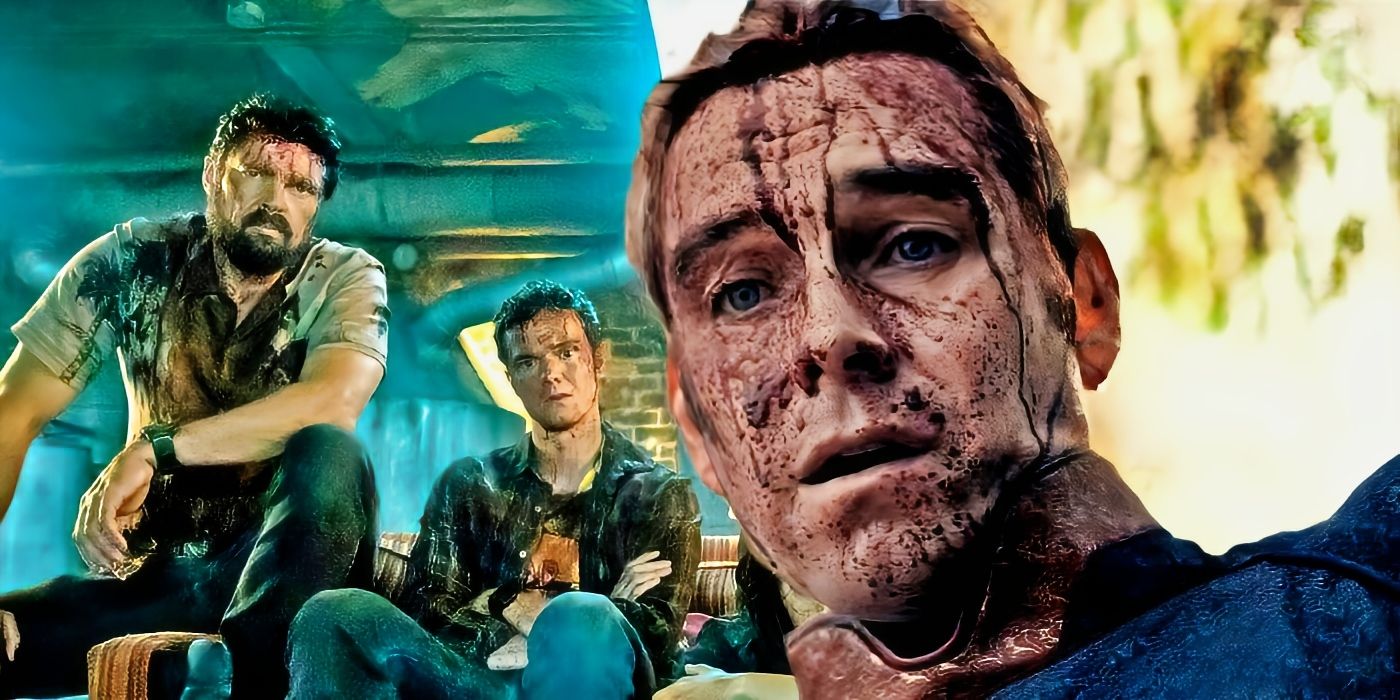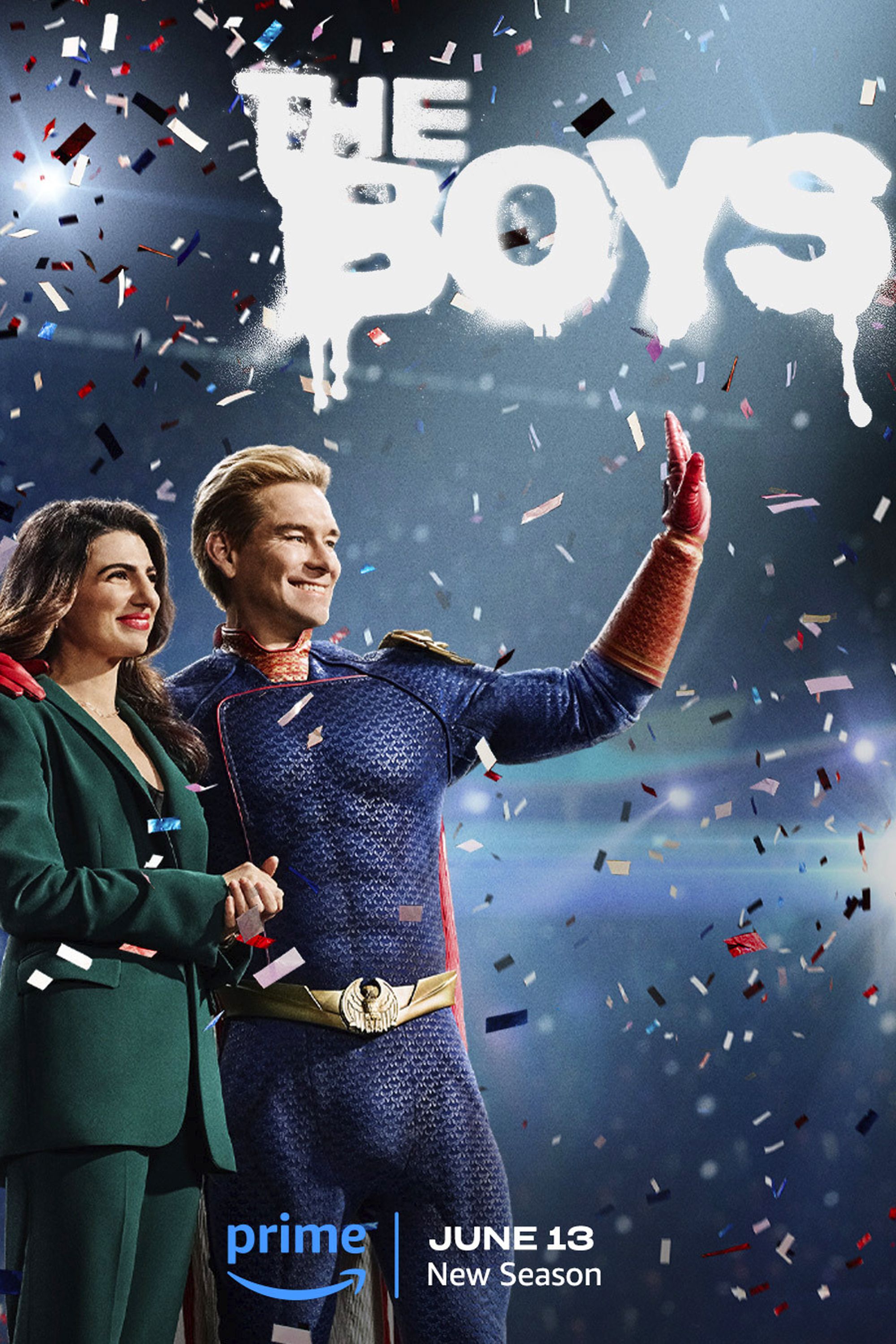According to Garth Ennis, creator of The Boys, social media would have radically altered how he wrote the series –though exactly how he thinks it would have changed the story is another example of the author’s patented cynicism, which was everpresent throughout The Boys run. However, it is worth considering an alternate perspective on technology, and how it could have informed the story in very different ways.
The 72-issue run of Ennis’ superhero satire occupied a unique point in time for contemporary culture, straddling the end of one era and the start of another, as social media platforms and high-speed internet technology became proliferate just as The Boys comic was coming to a close.
Now, the Amazon TV adaptation of The Boys faces the need to reckon with technology in a way its source material didn’t – which is perhaps a good thing, considering Garth Ennis has stated that he thinks the incorporation of current technology would have made the comic even darker than it infamously was.

Related
“That Was There from the Get-Go”: The Boys’ Shocking Twist Ending Was Planned from the Very Beginning
Garth Ennis reveals he planned The Boys’ twist ending right from the start, which is especially shocking given the opposite is true for Preacher.
“The Boys” Would’ve Been Even More Bleak In The Social Media Era
But It Didn’t Have To Be
For the majority of its run, much of the plot of The Boys hinged on the ability of the U.S. government, alongside the corporation known as Vought-American, to control the flow of information about superheroes to the public. Through the force of omnipresent media, Vought was able to manipulate the narrative about superheroes, effectively drowning out dissenting voices. That the world’s superheroes lived lives of blatant excess, outright perversion, and general disregard for the world’s populace was part of Garth Ennis’ scathing, cynical worldview, at least as it was formulated on the page in the world of The Boys.
In a 2019 interview, Ennis responded to the question of what he would do differently, were he to write The Boys now, by stating:
“The big difference would be the rise of social media, which I’d portray as making things 90 percent worse.”
In his answer, Ennis acknowledges his perspective on social media and internet culture is not positive. He would have seized upon the worst aspects of it, producing the same cutting critiques that The Boys applied to everything from superhero stories, to the self-interested actions of corporations at the expense of their customers. The Boys would have looked very different as a contemporary story – but that is, above all else, a product of Garth Ennis’ perspective as a creator.
It is worth questioning whether Ennis would “portray” social media would be its most effective possible use in The Boys. The internet era has without a doubt been a time of upheaval in every conceivable aspect of modern culture, but with its obvious downsides have come some glimmers of technology’s potential value. Social media’s use as a forum for activism, and a space to bring attention to corruption and scandal, could’ve been used to add an entirely new dimension to The Boys – one that might have counterbalanced the pessimism inherent in the series.
The Internet Would Have Made Homelander’s Vile Actions Harder To Cover Up
His Clean-Cut Image Couldn’t Be Sustainable
The question of social media’s impact on The Boys is best consolidated down to the series’ primary – though ultimate – antagonist, the leader of the Seven and Superman-esque figure known as Homelander. Conceptually, Homelander’s character stems from the question of what it would be like if Superman’s clean-cut image, and his committment to “truth, justice, and the American way,” were all fronts for a truly deranged, power-mad individual. For much of the story, the reality of Homelander’s nature was obscured from public knowledge by Vought-American’s propaganda apparatus, something that would have been increasingly difficult in the internet era.
One of the virtues of social media has been in the field of journalism, where the gap between when a reporter receives a piece of vital information and when they can transmit it to their widest-possible audience has been closed completely. Especially in spheres like politics, live-tweeting press conferences and offering instant exposition and analysis has become standard. This also applies to natural disasters, and those caused by humans. Applied to the world of The Boys, it is relevant to consider how long, and how effectively, the truth about “supes” reprehensible actions could be contained.
Certainly, The Boys is predicated on a conspiracy – and Garth Ennis would likely extend Vought’s narrative control to social media; they could perhaps, for example, train a group of superfast characters to routinely scrub the internet of evidence. Further, as fans of the franchise know, the company had no problem silencing its enemies. Alternatively, however, the potential did exist for Ennis to portray the internet as a crucial place of resistance to Vought’s superhero narrative –rather than just another, more intense playground for their worst depravities.
Amazon’s “The Boys” Can Address Ennis’ Concerns About Social Media
The Benefit Of Adaptation
Amazon’s television adaptation of The Boys offers one of the great benefits of adaptation: more than just re-doing the story in another medium, it has the opportunity to update its source material to reflect the contemporary era. The TV version of The Boys has already done this consistently across its first three seasons, particularly in its portrayal of Homelander. The character’s arc already seems to be on a different trajectory than the comic, and there remains a possibility that social media could come to play a more significant role in future seasons.
So far, the TV incarnation of Homelander has reflected the comic version’s increasingly tenuous grasp on his sanity – but television-Homelander’s response has been distinct, and given other changes from the original comic, it remains to be determined how far his character will truly diverge, or whether he will ultimately hew back closer to Garth Ennis’ depiction. The Boys approach to social media could be at the crux of substantial adaptive changes, for Homelander, and the series as a whole, as the show can firmly situate itself in the internet era.
Whether the series courts the same pessimistic outlook on technology that Garth Ennis has professed, or casts it in a more positive light, the role of social media and the internet in The Boys remains one of the most engaging critical discussions about the franchise. It is a given that for Ennis, the internet would have made his story “90% worse,” but for the many members of the audience, especially Millennial and Gen Z fans, there is a great deal of positive potential for the impact of social media on the story of The Boys.

The Boys
*Availability in US
- stream
- rent
- buy
Not available
Not available
Not available
The Boys is a superhero/dark comedy satire series created by Eric Kripke based on the comic series of the same name. Set in a “what-if” world that reveres superheroes as celebrities and gods who experience minimal repercussions for their actions. However, one group of vigilantes headed by a vengeance-obsessed man named Billy Butcher will fight back against these super-charged “heroes” to expose them for what they are.




